How to do Keyword Research for a brand?
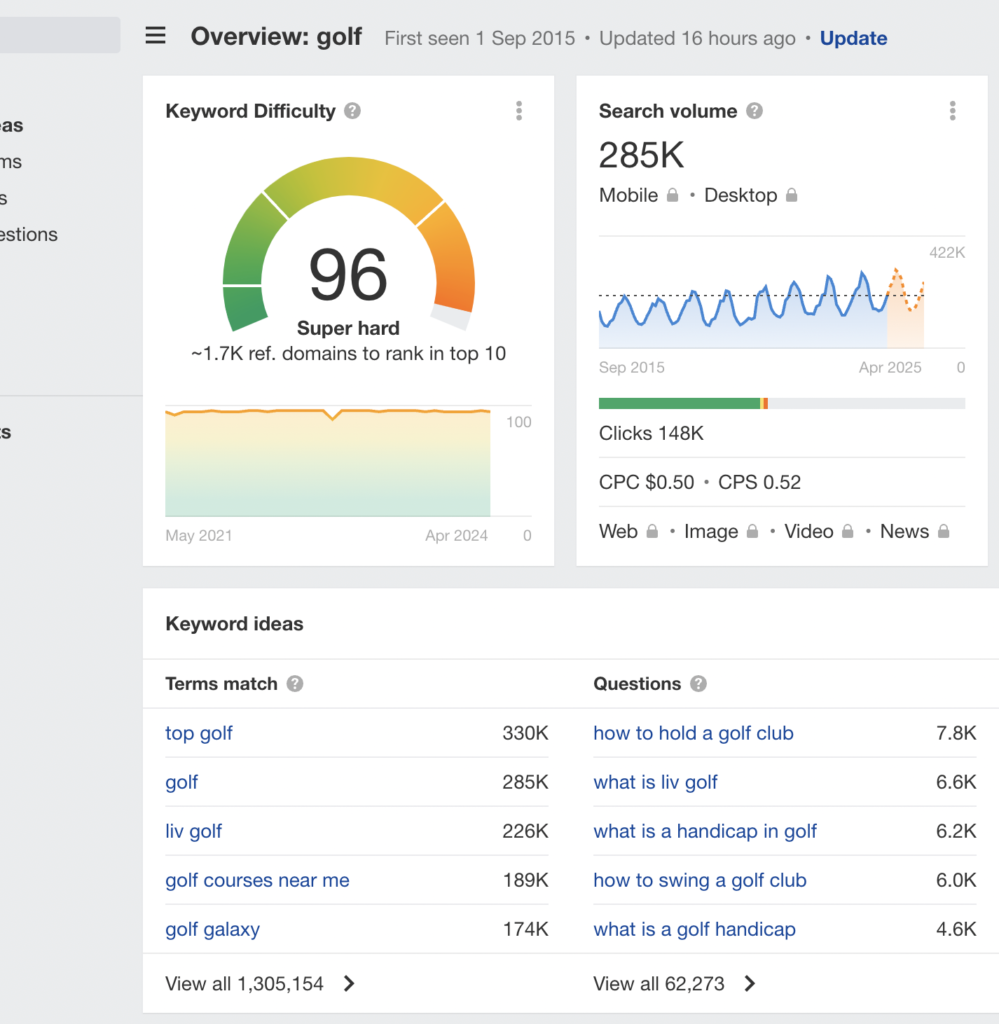
Before coming to keyword research for brands, we should first establish “what is a brand”. Several years back, I asked this question from my mentor Stephen Avila and he said- “if a website gets a lot of targeted traffic from different channels, it’s a brand”. I still stand by this definition.
Brand means customers. Brand means traffic and footfall. Brand means people come and they keep coming.
Hence, the keyword research rules for a brand are not very different from a general website on any topic. You just need to figure out what your customers are searching and then create the best quality guides around those topics.
Is it that simple though?
In this article, I will tell you my exact way of keyword research and how you can do it too!
Let’s take an example and say your brand is in the golf niche. You’re a golf kit manufacturer, so you need to attract an audience interested in this sport.
To start, we will use a tool called Ahrefs (only the best one in the market). The basic plan-$99 a month would be sufficient.
- Login to ahrefs and go to “keyword explorer”.

- Add the seed term “golf” in the box and click search.
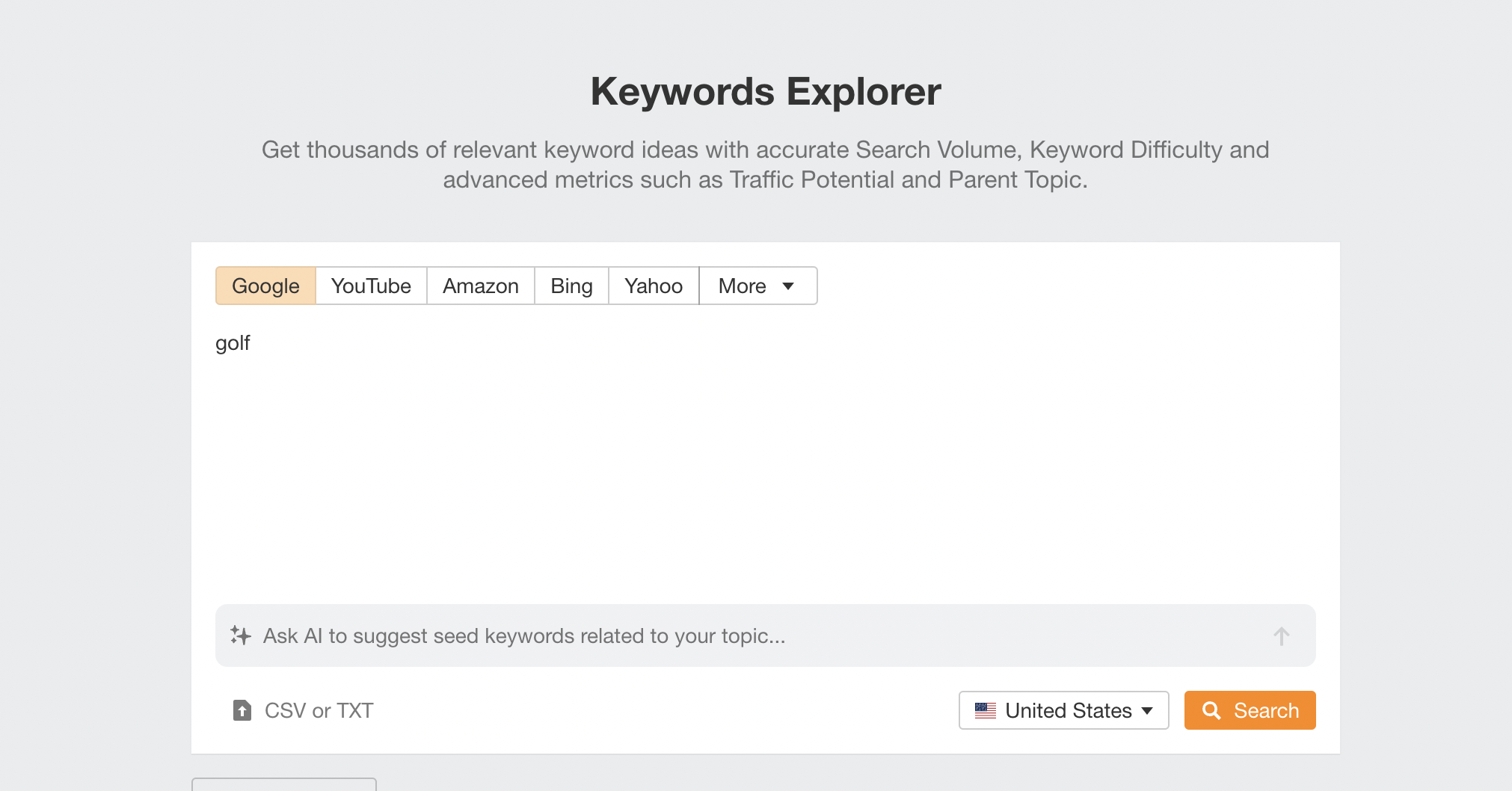
- Now on this screen, do you see the questions section?
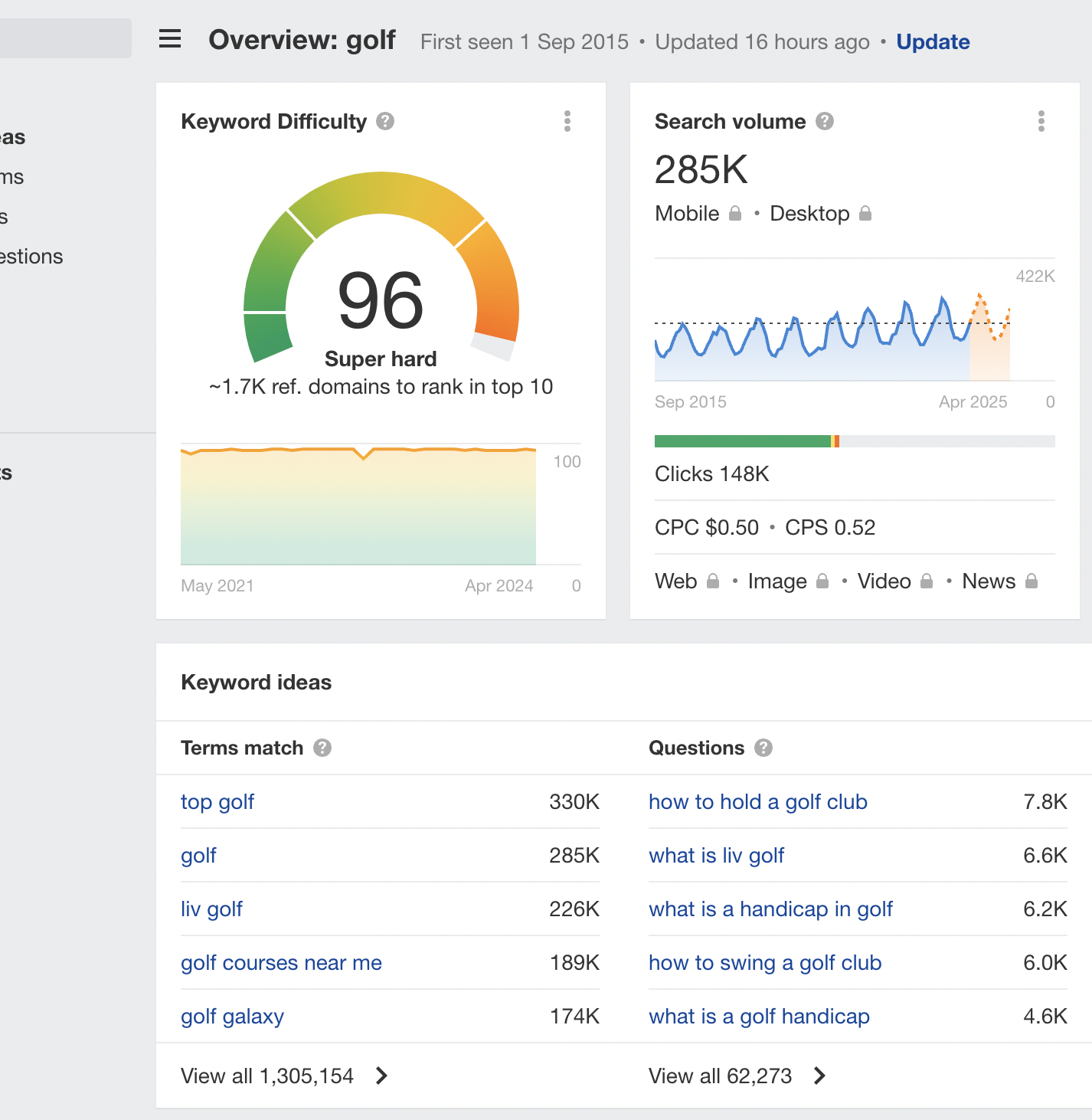
- Click on view all.
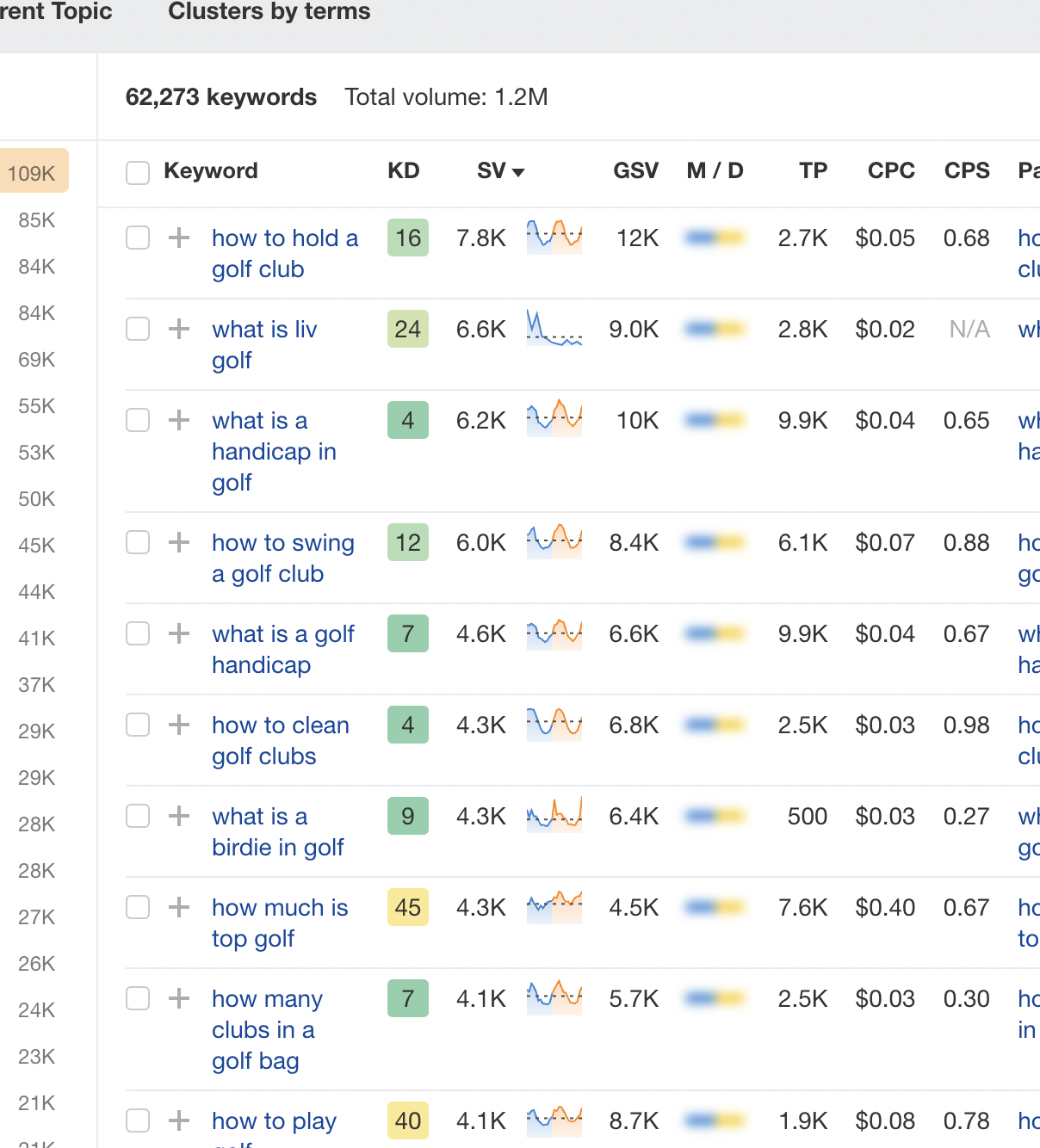
- You can now sort these questions out from “KD” and set the minimum search volume to be 1000.
For a beginner, these are the questions you can target in your blog posts.
With a thorough and well researched article, you should be able to get long tail traffic from google in your initial days which will give you some authority.
Next I am going to tell you about an amazing in-built filter in keyword explorer called lowest DR.
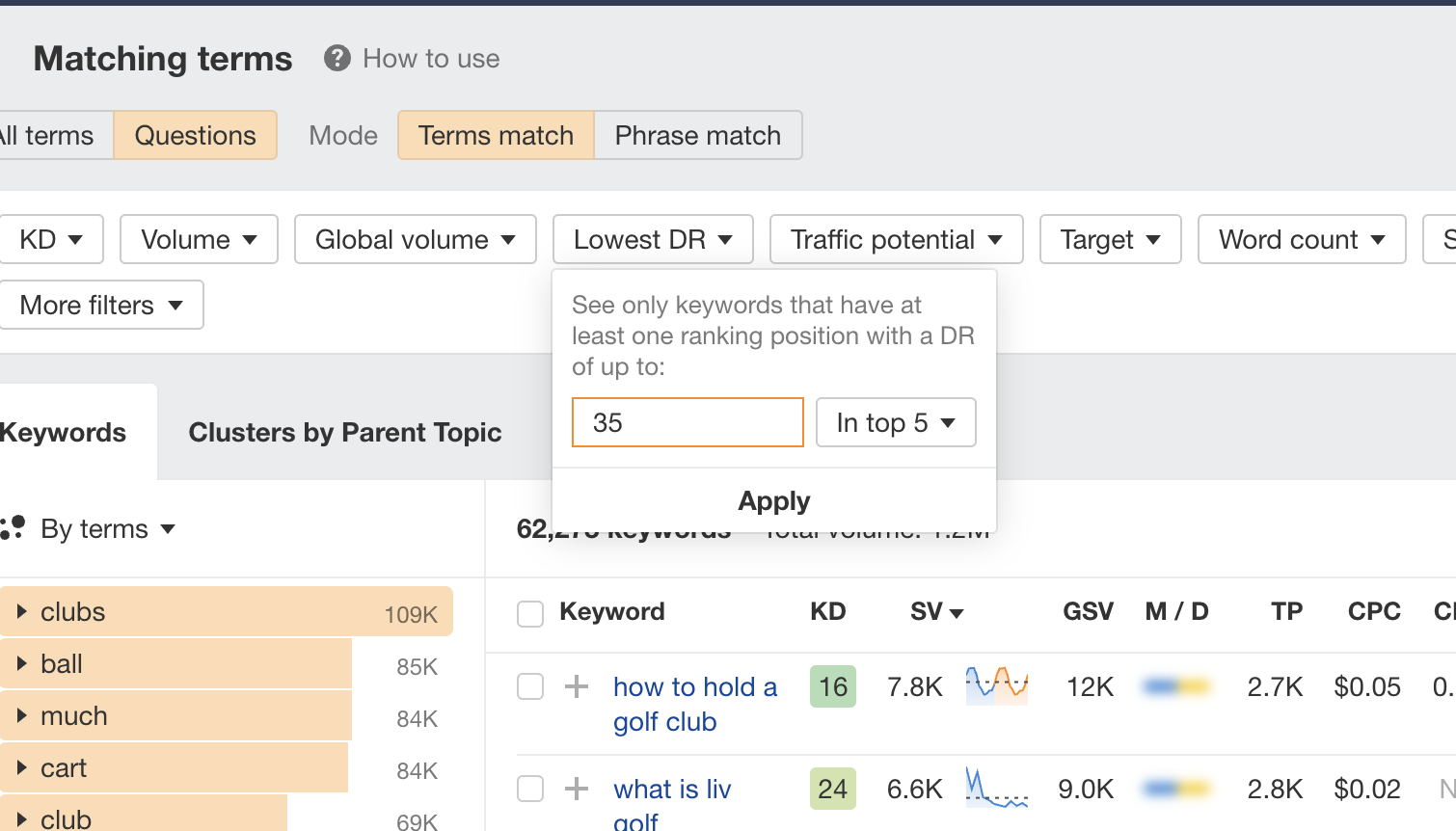
When you set up the lowest DR to say, 35, it will only show you the keywords where there is at least one low DR site in the top 5 or 10 positions on google. This means ahrefs does the hard work for you! You can pull these results, check the SERPs manually and take action based on the following information.
What is a good keyword?
Several years back, we were making a site in the software niche. We were confident that the website we are working on will make us tons of money. We ranked in 4 months and saw that it was only making 10% of the expected income.
Yes, we made the noob error of not checking the GEO (target country of traffic). It was India and due to the low CPC in India, we made nowhere near our expected revenue.
So let’s look at the major things you need to look into when you’re finalising a keyword.
- Search volume– depending on the industry it could be 500 a month or 50k a month. For example- the number of people searching for “which marvel movie is releasing next” would be way more than “what do squirrels eat”. Make sure you’re always looking at the average search volume of the last few months and make the right decision.
- GEO– Like we said, your target audience who can pay you well is only sitting in certain countries. If you’re targeting a country where the paying potential is less, you’re losing out on a lot of money opportunities. Target tier 1 countries if you want to attract the right audience to your brand.
- Keyword intent– Is your user looking for some information or they want to buy a product? Understanding the intent of the keyword is very important. That is how you will craft the best copy for them.
- Search results– What is the benefit of a keyword, if it’s swamped with ads and unnecessary snippets? If you rank for 1+1=2, do you think users will click on your website link ever? No! Understanding search results is very important for your brand.
- Trend– There are some keywords that are evergreen like “how to ride a horse” and there are some keywords that only popup in certain seasons like “best christmas tree”. As a brand you should target both but pay special attention to the evergreen nature of the keywords while doing your research.
While this might not look so easy at first, practice makes perfect. Within a few days, you will be a pro at keyword research and it will only take you a matter of mins to find out the best keywords for your brand authority!
SEO is a skill that is very very practical! Take action.